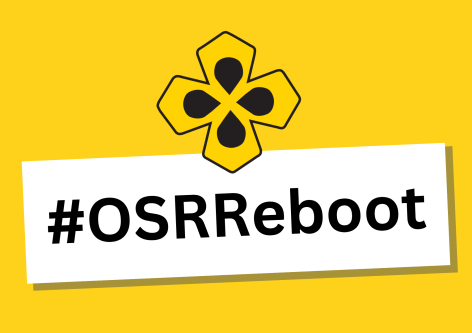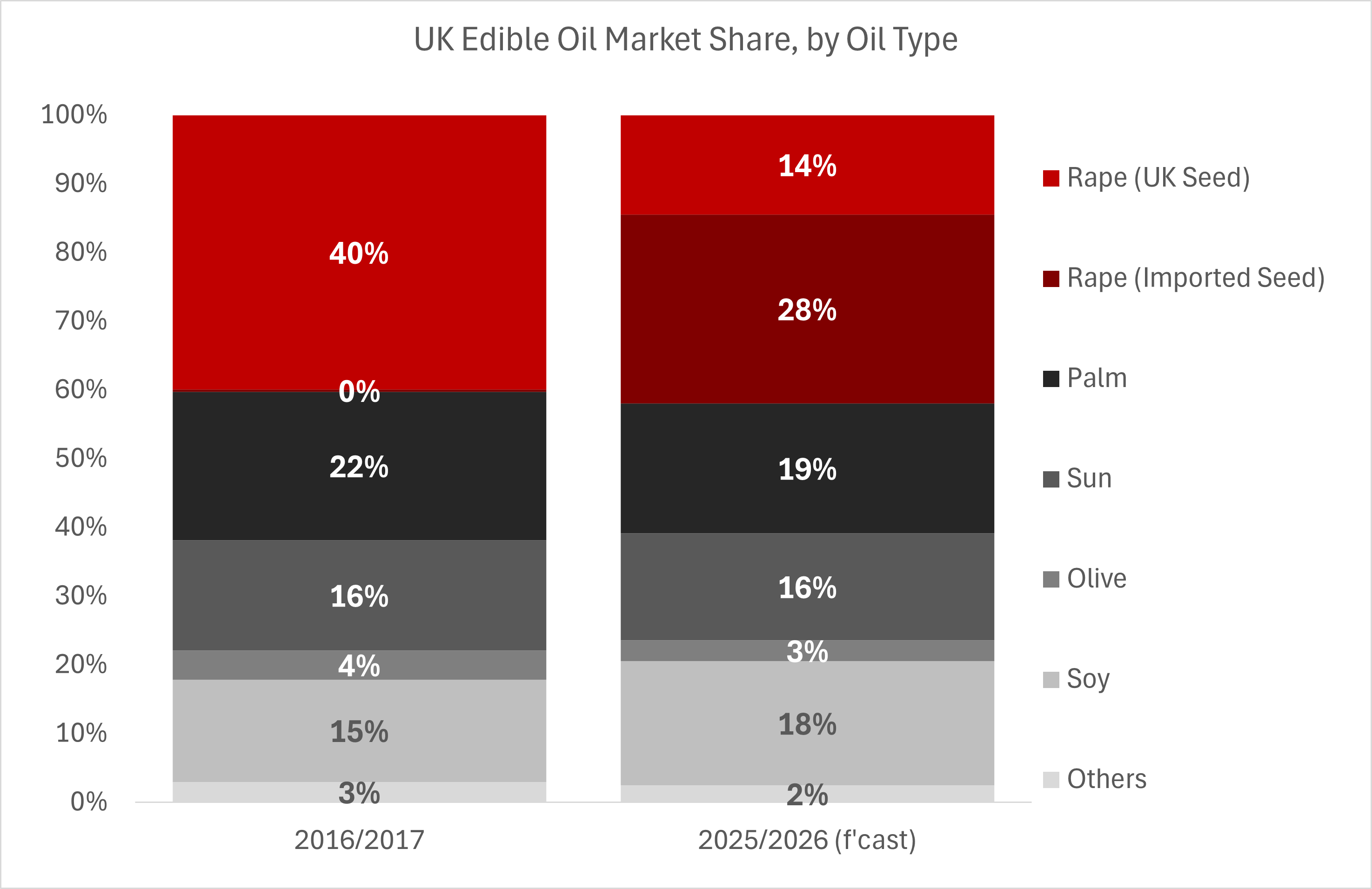
Food security has become a pressing issue in the UK, and with United Oilseeds championing the OSR Reboot, we are placing the spotlight firmly toward edible oils and the critical role they play in our diets and food systems.
The Labour government has emphasised that food security is national security - a message that underscores the strategic importance of domestic food production in safeguarding the nation’s resilience. Among the key contributors to food security is rapeseed oil, derived from oilseed rape (OSR), a cornerstone ingredient found in countless products, from salad dressings and mayonnaise to crisps, soups, and food service staples. Despite its ubiquity in the food supply chain, the future of this essential crop faces significant challenges that demand urgent attention.
Rapeseed Oil: The Unsung Hero of Edible Oils
For many years, UK consumers have encountered bottles labelled "vegetable oil" on supermarket shelves, likely assuming it to be a blend of oils. However, the reality is that these bottles predominantly contain rapeseed oil. Accounting for a 40% share of the UK edible oils market, rapeseed oil far outstrips its competitors in importance. For context, it is 13 times more significant to the UK market than olive oil, which often garners disproportionate attention in the media, and in conversations around the dinner table.

Yet, while rapeseed oil's market dominance remains undisputed, the source of this vital product has shifted dramatically. Less than a decade ago, the UK produced all the rapeseed it consumed domestically. Today, as a result of difficulties in growing OSR, only 14% of the rapeseed oil used in the UK is derived from homegrown crops, leaving the nation heavily reliant on imports. This dependence poses serious risks in an era of global supply chain volatility and geopolitical uncertainty.
An Irreplaceable Domestic Resource
Unlike crops such as olives, palm, soy, and sunflowers, which cannot be cultivated in the UK, oilseed rape represents the nation's only viable option for a domestically produced edible oil. This makes the decline in UK-grown OSR a critical issue for national food security. Without intervention, the country risks exposing itself to severe supply shocks that could disrupt everything from food manufacturing to animal feed production.
Rapeseed meal, a byproduct of oil extraction, is also a high-protein feed essential for ruminant diets. Substituting domestically produced rapeseed meal with imported alternatives such as soya not only increases costs but also carries potentially significant environmental consequences. We believe the OSR Reboot, which promotes innovative practices and sustainable farming methods, will play a pivotal role in reversing this trend and securing a stable domestic supply of oilseed rape.
An Urgent Call to Action
The decline of UK-produced rapeseed oil is more than just a farming issue; it is a food security emergency! Policymakers, industry stakeholders, and consumers must recognise the strategic importance of oilseed rape to the nation’s food system. Supporting efforts to bolster domestic production will not only safeguard the UK against supply shocks but also promote environmentally sustainable agriculture. The time to act is now, before the UK’s reliance on imported edible oils deepens, leaving the nation’s food security in a precarious position.
See also: EPISODE 1: Why the UK Must Rebuild Oilseed Rape: A Collaborative Path Forward
